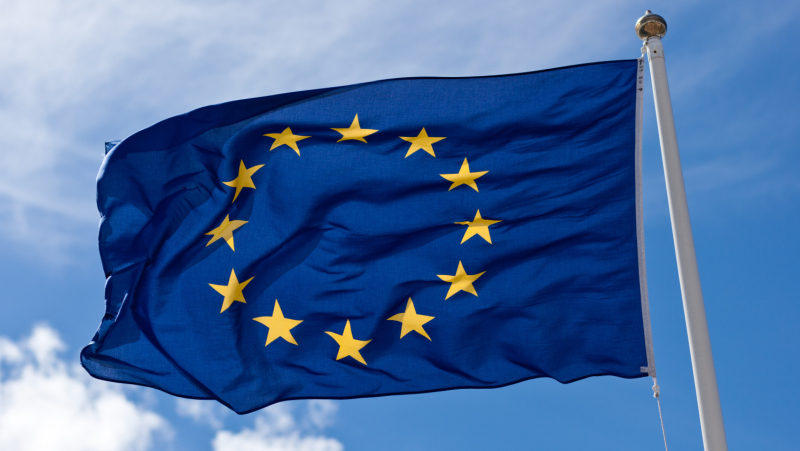EU vote on corporate sustainability due diligence fails to fully recognise key role of human rights defenders
Ryan Brightwell, Campaign Lead Banks and Human Rights, BankTrack

Ryan Brightwell, Campaign Lead Banks and Human Rights, BankTrack
Last week the European Parliament’s legal affairs (JURI) committee adopted its position on the proposed EU Corporate Sustainability Due Diligence Directive. Amid strong pressure, the text is a significant step towards ensuring mandatory human rights and environmental due diligence across the full value chain. It includes several important improvements and goes a long way towards aligning with the UN Guiding Principles on Business & Human Rights and OECD Guidelines for Multinational Enterprises.
However, as organizations working closely with Human Rights Defenders (HRDs) across the globe, we are concerned that the text, compared to the European Parliament (EP) Rapporteur’s draft, the human rights, development and environment committees’ opinions and other positions, constitutes a missed opportunity to explicitly recognise and protect defenders as affected and legitimate stakeholders.
Defenders play a critical role in protecting human rights and the environment, but their work exposes them to enormous risks, too often resulting in reprisals and tragically the loss of life.
In 2022, Front Line Defenders and its HRD Memorial partners documented the death of 401 defenders worldwide – 48% of whom were HRDs defending land, environmental and indigenous peoples’ rights.
Business & Human Rights Resource Centre (BHRRC) documented over 4,700 attacks on defenders related to business activities since 2015, which highlights this is a salient human rights issue in many business sectors. In a report released on Wednesday, BHRRC shows that 555 attacks took place in 2022 alone, revealing that on average more than 10 defenders were attacked every single week for raising legitimate concerns about irresponsible business activity. Indigenous defenders and communities continue to face disproportionate risks. Additionally, BHRRC data shows that approximately 1/3 of all attacks in 2020 stem from a lack of consultation or the failure to secure the free, prior and informed consent (FPIC) of affected indigenous peoples and affected local communities with customary tenure rights. In many cases, attacks can be traced directly back to business actors: for example, strategic lawsuits against public participation (SLAPPs) are one well-documented tactic used by businesses to stop people raising concerns.
At the same time, while there is growing business acknowledgement of HRDs as affected stakeholders, the particular risks and impacts they face are still not sufficiently recognised by many EU companies. The 2021 UN Working Group on Business & Human Rights’ authoritative guidance clearly states that lead firms may cause, contribute to or be linked to such impacts across their value chains.
In light of the above, the final JURI text, despite promising elements regarding stakeholder engagement, reference to the Aarhus Convention and FPIC, as well as removal of some obstacles to access to justice, misses out on covering human rights defenders more comprehensively and explicitly beyond ‘other stakeholders’ to be consulted. There must be no ambiguity regarding the urgency of engaging with HRDs and ensuring their protection from retaliation and other adverse impacts as affected stakeholders.
A recent Front Line Defenders report documented three case studies – from Colombia, India and Uganda – demonstrating how HRDs and their communities would be better protected by a strong EU Directive that explicitly places defenders at its core.
For ILC, the protection of land and environmental defenders remains a top priority. The draft EU law is a huge step forward for communities across the globe. But to be effective it must be explicit in protecting Human Rights Defenders and how one can enforce those rights in case of violationsEva Maria Anyango Okoth, HRD from Kenya, and the Senior Program Officer for Africa at the International Land Coalition (ILC)
As the negotiations move to the next step, the plenary vote in the European Parliament and then the trilogue negotiations, we reaffirm that to fully protect and recognise HRDs, it is critical that the legislation avoids ambiguities in protections and retains strong language that had been included in earlier drafts, including the EP Rapporteur’s proposal and the opinions from the human rights, development and environment committees. At a minimum we recommend that the final text of the Directive as agreed by co-legislators:
- explicitly includes Human Rights Defenders as affected stakeholders in the corresponding stakeholder definition and covers them as such in provisions on mandatory stakeholder engagement, grievance mechanisms and non-retaliation;
- similarly recognises organizations protecting human rights and the environment in the same definition and provisions; and
- includes the UN Declaration on Human Rights Defenders, which breaks down key human rights for the specific context of defenders, in the Annex, along with important additional references e.g. to the Escazú Agreement.
We also point to concerns outlined by civil society organizations about the text’s remaining shortcomings regarding access to justice and other areas, both for defenders and all other rightsholders.
Statement originally published by Business & Human Rights Resource Centre and Front Line Defenders. See the full version and a complete list of signatories here.
